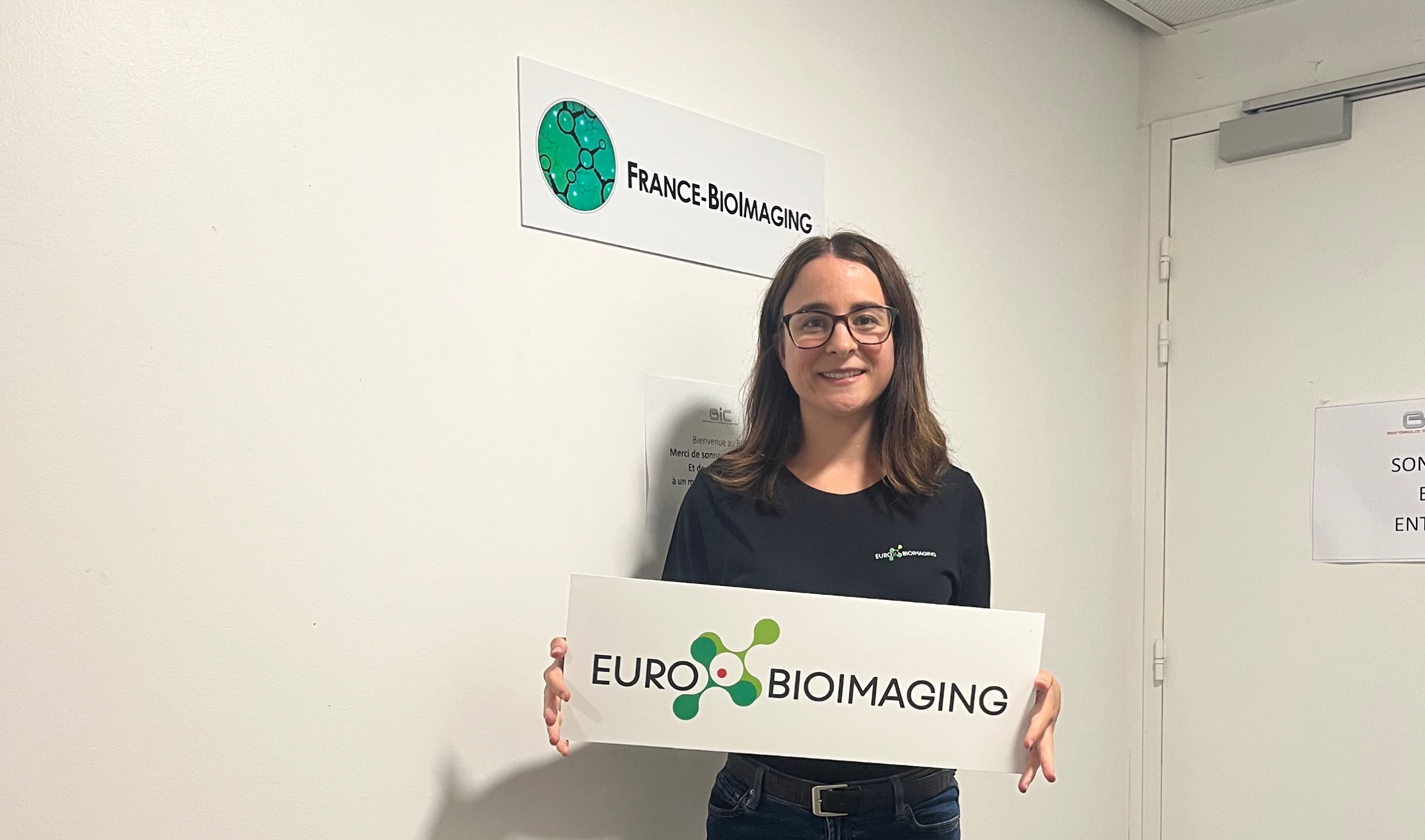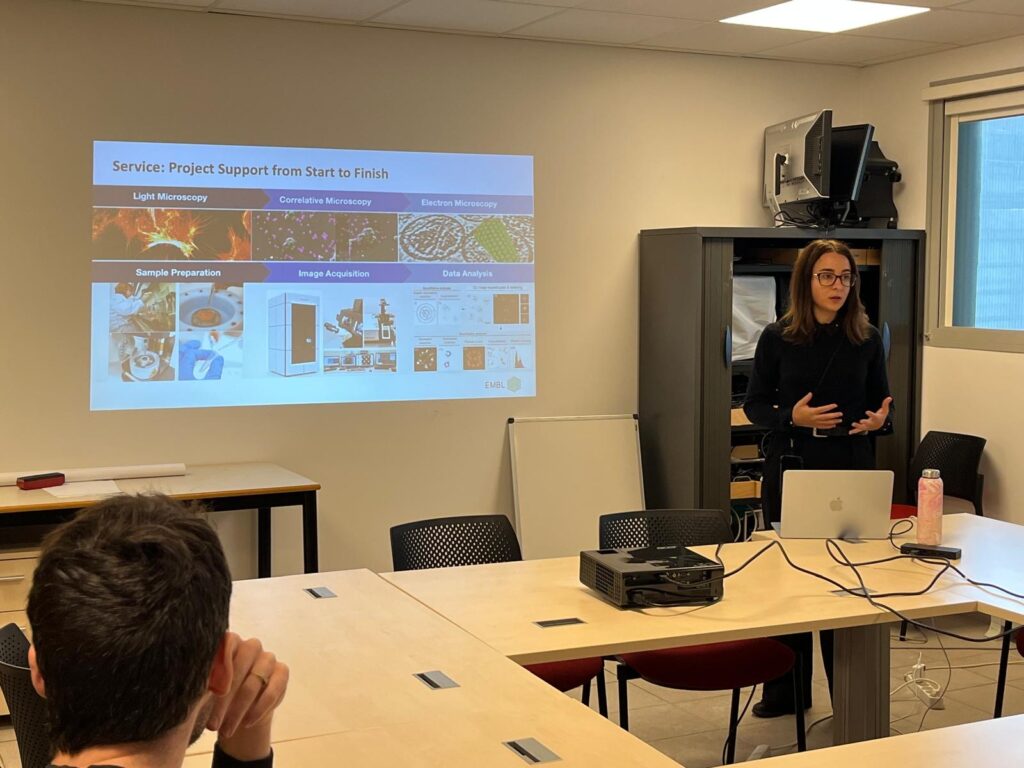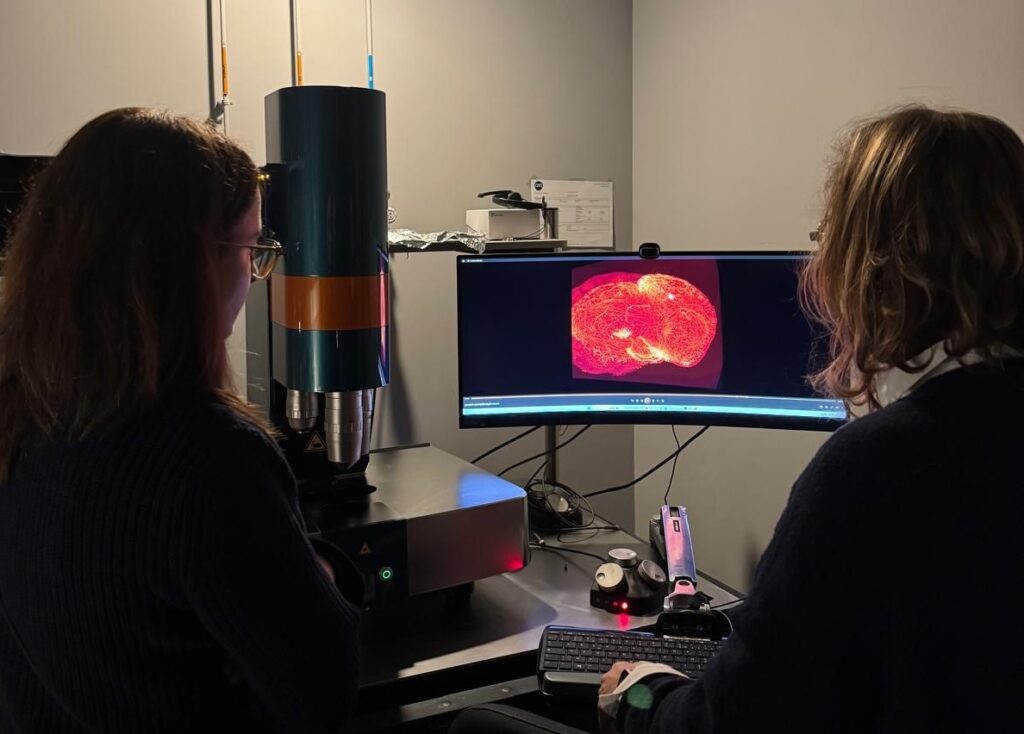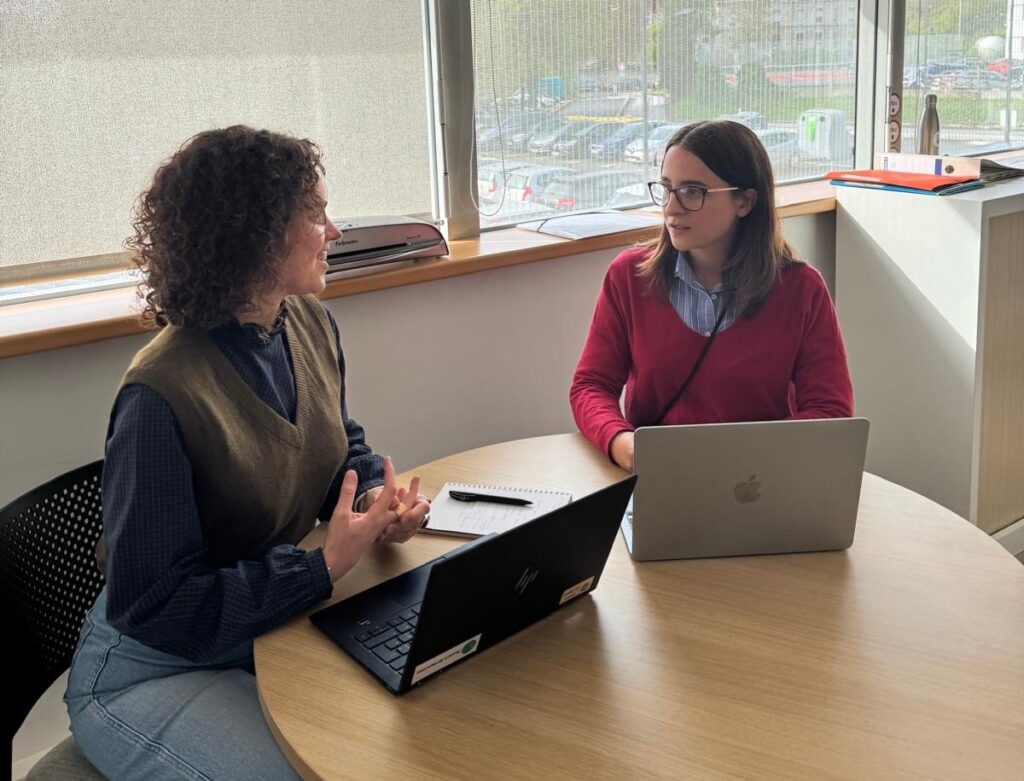Towards Unified Services: Learning from France-BioImaging

Hello from the EMBL Imaging Centre! I am Virginia Pierini, the Service Manager, and I recently had the invaluable opportunity to spend a week immersed in the world of France-BioImaging at the Bordeaux Imaging Centre. This job-shadowing visit, made possible by the EVOLVE programme, was a crucial step in EMBL’s ongoing efforts to enhance and integrate our user services across various sites and technologies.
My visit was hosted by the incredibly welcoming and knowledgeable Caroline Thiriet, Administrative Director for International Affairs & Industry at France-BioImaging (FBI). Caroline ensured my week was packed with insights, dedicating time for focused discussions, one-to-one meetings with her team, and a comprehensive tour of the impressive Bordeaux Imaging Centre. I was particularly fascinated by their portfolio of facilities and expertise, especially their experienced support for neuroscience and plant physiology projects. Beyond the scientific immersion, Caroline also ensured I experienced the charm of Bordeaux’s city centre, including a delightful glass of Lillet with live music and a delicious dinner in a local bistrot. A truly warm and memorable welcome!
The purpose: A unified vision for EMBL’s services
To meet the growing demand within the user community, EMBL recognises the need to provide streamlined user access to its services across all sites in the future. Driven by technological developments and increasingly complex research questions in the life sciences, many scientific projects now require a combination of imaging technologies from multiple EMBL sites, as well as complementary approaches from other fields such as genomics and proteomics. The long-term goal is to establish a unified approach to managing and presenting these services, aiming to simplify access and enhance the overall user experience.
My job-shadowing visit was motivated by the need to understand how such a distributed service could be effectively managed in the future. Learning from the France-BioImaging Node, a highly successful example of a multi-site research infrastructure, represented a unique opportunity. By exploring how FBI coordinates user access, internal communication, and administrative processes across its extensive network, I aimed to gather practical insights that will directly support EMBL’s efforts to develop a cohesive, user-centred service model.

Understanding France-BioImaging: A national asset for Life Science research
FBI is a National Infrastructure in Biology and Health (INBS), established in 2011 through France’s Investissements d’Avenir programme. At its heart, FBI operates at the crossroads of biology, biophysics, engineering, mathematics, and informatics.
FBI’s primary mission is to develop and provide access to state-of-the-art imaging technologies, innovative approaches, and expertise for scientists. It brings together a unique, coordinated infrastructure of several large biological imaging facilities and laboratories specialising in R&D for imaging, structured into six local Nodes and one transversal Node dedicated to bioimage informatics.
The core philosophy of FBI is to associate leading R&D research teams with service facilities. Its ultimate goal is to facilitate the efficient adoption of the latest advances in microscopy-related technologies and methods by users of their facilities. These technologies, reinforced by strong computational analysis support, provide quantitative measures and integrative understanding of a wide range of cellular and tissue activities in biological models.The triptych “Innovation, Training, Access” forms the backbone of FBI’s activities, driving their efforts to invent and disseminate new imaging technologies, participate in national and international educational programmes, and make these resources accessible to both academic and private-sector users worldwide.

Job shadowing: Key learnings and reflections
During my week at France-BioImaging, I achieved several key milestones that directly aligned with my objectives of understanding and improving the management of distributed research infrastructures.
I gained a comprehensive overview of FBI’s coordination model across its ten Nodes and thirty facilities, which provided invaluable insights into effective governance, user access management, and inter-Node collaboration. A significant focus of the visit was learning about FBI’s internal and external communication strategies together with Marine Beraud, FBI Communication Officer, covering their website (including a preview of its exciting restructuring), newsletter, and social media channels. This demonstrated how consistent messaging and transparent information flow are crucial for strengthening community engagement.
I also received an in-depth overview from the FBI Business Developer, Samy Al-Bourgol, on industry relations, encompassing types of collaborations, market strategies, commercial prospects, and tailored communication materials for industry partners. Furthermore, discussions on FBI’s technology investment strategy revealed a structured approach that integrates feedback from both a user committee and a technology watch committee to guide future developments and equipment upgrades. Finally, sessions on financial models and administrative coordination provided a holistic view of how FBI sustains its distributed infrastructure.
Collectively, these milestones fulfilled the objectives of my visit and provided a wealth of practical insights that will profoundly inform EMBL’s efforts to implement a cohesive, user-centred framework for integrated imaging services.

EVOLVE programme: A heartfelt thank you
I am incredibly thankful to the EVOLVE programme for making this enriching experience possible. My deepest gratitude goes to Caroline Thiriet for her exceptional hospitality, her generous dedication of time, and the invaluable knowledge she and her team shared.
The insights gained from France-BioImaging will be instrumental as we continue to evolve EMBL’s integrated user services. This visit has not only provided practical tools but also reinforced the power of collaboration and of learning from successful models within the scientific community. I look forward to applying these lessons to further enhance the EMBL Imaging Centre’s offerings and strengthen our support for cutting-edge research.